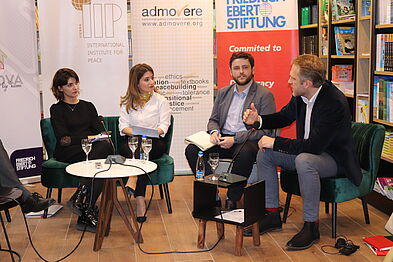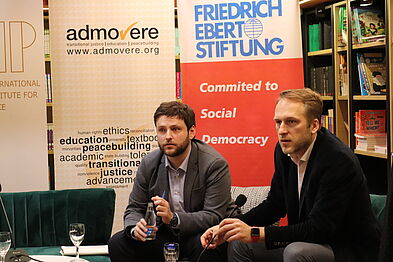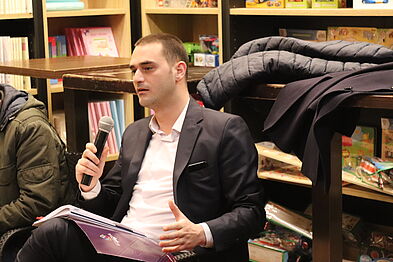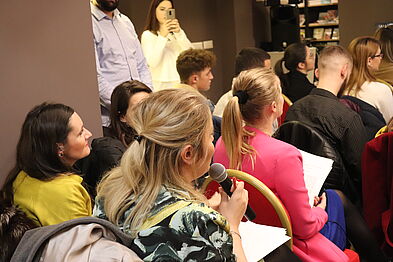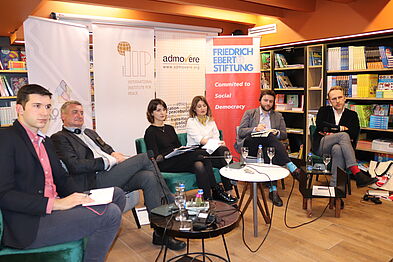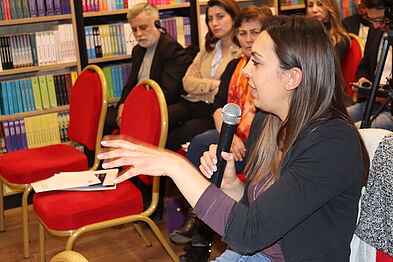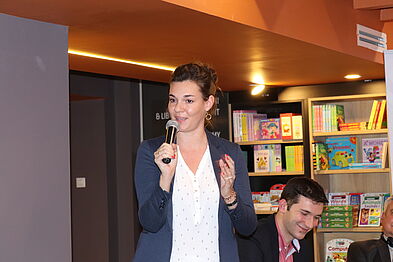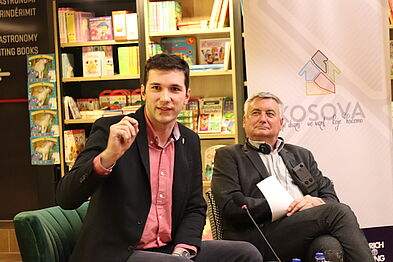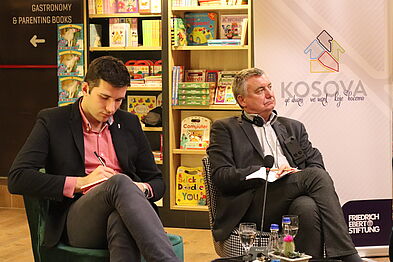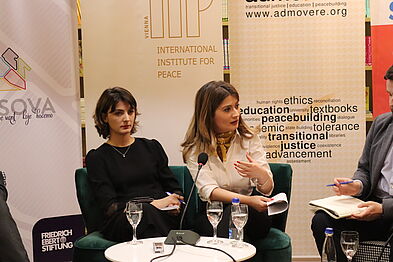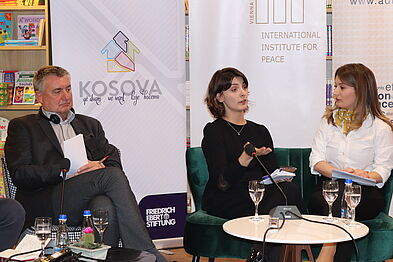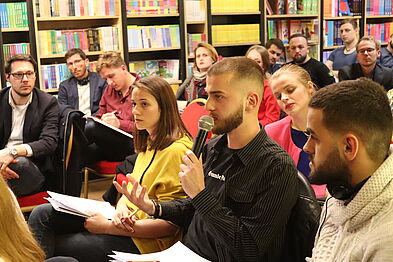Young Generations for the New Balkans 2030: Towards Alternative Horizons

Regarding the age structure of their population, the Balkans are the youngest region on the European continent – and accordingly, the perspectives of young people must not be neglected when assessing the perspectives for regional cooperation in the Western Balkans. On Monday, March 12, Friedrich-Ebert-Stiftung and its partners organized the panel discussion “Young Generations for the New Balkans 2030: Towards Alternative Horizons” focusing on perspectives for future regional cooperation and particularly the opportunities for young people to contribute to the latter in a meaningful manner.
Due to the political relevance of the issue discussed, two high-level guests joined FES and its partners for the opening remarks of the event. Elaborating on the importance and promising effects of European integration, Dhurata Hoxha, Minister for European Integration, called for the EU to grant visa liberalization to Kosovo. Hannes Swoboda, former member of the European Parliament and president of the Vienna-based International Institute for Peace, focused more on the civil society component regional cooperation and European integration by encouraging youngsters in the region to connect and to jointly represent their interests in Brussels.
The introductory remarks were followed by a vivid panel discussion with activists and experts from different fields. Being directly involved in the work with youngsters, Dafina Peci (National Youth Congress, Tirana) and Aulona Memeti (ADMOVERE) described the necessity of involving young people as change-makers in politics, while also mentioning structural obstacles. From a more academic perspective, Adi Cermiagic (European Stability Initiative) and Djordje Bojovic (Former program director at European Grassroots Antiracist Movement) insisted on the relevance of a bottom-up normalization process and compromise for the successful regional integration. Frank Hantke, country director of FES Prishtina Office, stressed the importance of improving the conditions for young people in Kosovo in order to offer them perspectives in the region and encourage them to contribute to regional development.
A fruitful exchange between the panelists and the mostly young participants of the event shed a light on the most pressing issues for youth in Kosovo and the region. In order to allow young generations to actively participate in politics and to get engaged in advancing regional cooperation, more investments – including those by international donors – in education were identified as an important starting point. Besides the necessity of increasing cross-border youth cooperation and exchange, a peace agreement based on good neighborly relations, protection of minorities and reconciliation is unanimously considered a necessary step for Kosovo and Serbia. Yet, a result of the discussion also consisted in the insight that any kind of youth engagement requires first and foremost concrete steps tackling the lacks of inclusiveness and transparency as well as increasing accountability of decision-makers and opportunities for participation.
Friedrich-Ebert-Stiftung
Kosovo
Ul. Pashko Vasa 23
10000 Priština
Republika Kosovo


